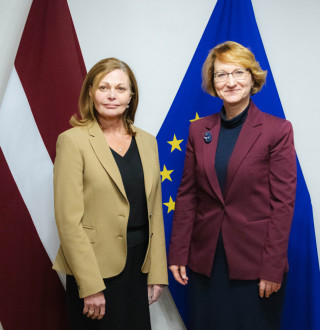Cross-border mobility in the Nordic and Baltic countries is increasing, also among students. A groundbreaking four-year project has recently concluded aimed at digitally connecting higher education institutions to make it easier for Nordic-Baltic students to study abroad.
Cross-border mobility has increased significantly in the Nordic and Baltic countries over the last 10 years. According to the study, more than 300,000 Nordic citizens live or work in another Nordic country and the number is on the rise. In recent years, about 50,000 people have moved to another Nordic country each year, for various reasons. If the study would have also considered cross-border mobility between the Nordic and Baltic countries, the figures would be significantly higher.
The CBDS-Study project focused on the very practical problem of secure international digital transfers of education credentials between universities and higher-education institutions. The intention was to create a common workable model and permanent solutions for cross-border data exchange and cooperation between authorities practices for improving and increasing the effectiveness of cross-border data exchange.
Ministerial-level officials were engaged in the project, especially in Finland, Estonia and Latvia. The project promoted standardized administrative processes, boosting international compatibility. That ultimately benefits Latvian students, since streamlined credit transfers reduce administrative stress and personal bureaucratic responsibility, encouraging more young people to study in the Nordic countries.
The study concluded that cross-border services are rare exceptions in the Nordic countries and, on most part, services are only designed for local purposes and people in one country. Thus, barriers for cross-border data exchange and mobility are raised. To make the Nordic countries truly the most integrated region in the world, smooth data exchange between the authorities of different countries is essential.
Key achievements of the project
- Paving the way for the secure digital exchange of educational credentials.
- Promotion of the EMREX platform, for smoother student data exchanges.
- Development of a handbook and baseline study to guide future cross-border data initiatives.
Additional information on the project is available here.
Project "Achieving the World's Smoothest Cross-Border Mobility and Daily Life Through Digitalisation" was supported by the Nordic Council of Ministers and carried out by Project Manager Riikka Rissanen and Specialist Petteri Pulli from the Finnish National Agency for Education.











